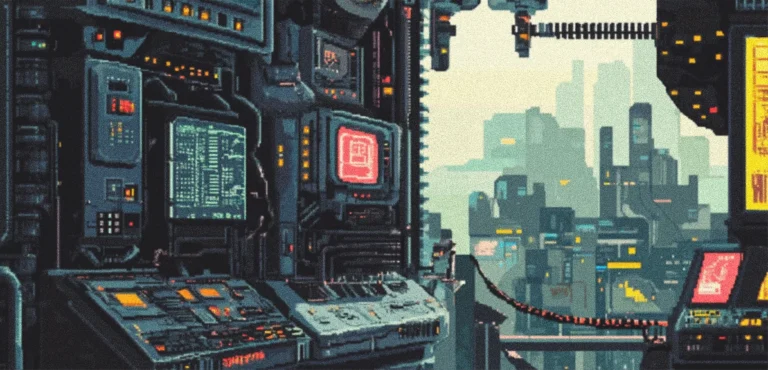
2024 Tech Roundup: The Major Tech Stories Everyone is Talking About This Year
Halfway through 2024, the tech world has experienced a flurry of technological advancements, groundbreaking innovations and disruptions. The tech industry remains a vibrant hub of activity, with new products, updates, and trends emerging rapidly.
As we look ahead to 2025 annual planning, our top covered news stories shine light into future priorities, budget allocations, and C-suite leadership goals. Whether you’re a tech enthusiast eager to stay ahead of the curve or a business leader looking to capitalize on the latest trends, this article will be your definitive guide to understanding the tech landscape that shaped the first half of 2024.
Google leads AI dominance wave
Tech giants like Google led the charge in AI innovation with language models and video generation advancements. At Google’s 2024 I/O developer conference, the company made several announcements about its AI efforts. It introduced a new AI model called Gemini 1.5 Flash, which builds upon its existing Gemma AI models. Google also announced plans to add AI capabilities to various Google products, such as Android and Google Search.
Perhaps most notably, Google unveiled its roadmap for a new AI project called “Project Astra,” a direct competitor to OpenAI GPT-4o. The project demonstrated Google’s vision for the future of AI assistants. Beyond language models, Google also introduced Veo, its most advanced text-to-video generation system. Veo can generate high-quality videos in 1080p resolution that can exceed one minute.
Economic uncertainty means job cuts, constantly
The tech industry is navigating through a challenging period marked by a wave of layoffs driven by various factors. Economic headwinds, the anticipated labour cost efficiencies promised by advancements in artificial intelligence (AI) and the lingering aftermath of the post-pandemic hiring surge have all coalesced to create immense pressure on tech companies.
In response, tech firms are undertaking major restructuring efforts to realign their operations and staffing levels with the evolving economic landscape. The year 2024 has already seen over 60,000 job cuts across 254 companies, according to independent layoffs tracker Layoffs.fyi. Prominent tech giants like Tesla, Amazon, Google, TikTok, Snap, and Microsoft conducted substantial workforce reductions in early 2024. Even smaller startups haven’t been immune, with some forced to close their doors entirely.
But wait, there’s more! The bad news continues into the second half of the year. Chip giant Intel recently announced plans to lay off approximately 15 percent of its workforce as part of a cost reduction program. The company aims to achieve over US$10 billion in savings in 2025 to “increase efficiency and market competitiveness.” Most of these layoffs are expected to be finalized by the end of 2024.
EU AI Act: A groundbreaking step in AI regulation
The Artificial Intelligence Act of the European Union, also known as the EU AI Act or the AI Act, is the world’s first comprehensive regulatory framework that aims to govern the development and/or use of AI in the European Union (EU). The legislation, which came into force on August 1, 2024, applies a risk-based approach to regulating AI. This means that different technology applications are regulated differently depending on the level of risk they pose to society: Unacceptable, high, limited, and minimal risk.
For AI applications deemed “high-risk”, strict obligations will be introduced under the AI Act. Examples of high-risk AI systems include autonomous vehicles, medical devices, loan decisioning systems, educational scoring, and remote biometric identification systems. The law also imposes a blanket ban on any applications of AI deemed “unacceptable” in terms of their risk level. This includes “social scoring” systems that rank citizens based on their data, predictive policing systems, and emotional recognition systems used in workplaces and schools.
The AI Act applies to any company using AI in Europe, big or small. Breaking the rules can result in hefty fines of 35 million euros (US$38 million) or 7 percent of their annual global revenues—whichever is higher. The EU ensures that AI is developed and used safely and responsibly.
Subscribe to our bi-weekly newsletter
Get the latest trends, insights, and strategies delivered straight to your inbox.
Nvidia stock surges past Apple
In a dramatic shift in the tech industry, chipmaker Nvidia surpassed Apple to become the world’s second most valuable company in 2024. As of June 5, 2024, Nvidia achieved a market value of US$3.34 trillion. Meanwhile, Microsoft remained the world’s most valuable company at US$3.15 trillion after its shares climbed 1.9 percent. Market values can be volatile and change frequently, so the figures provided reflect the June 5, 2024 snapshot.
Nvidia has seen a huge increase in demand for its AI processors from major tech companies. The company’s revenues have grown by over 260 percent in the past year. Meanwhile, tech giants like Microsoft, Meta, Google, and Amazon are racing to adopt AI technologies.
Nvidia has been at the forefront of this AI-driven growth. In June 2024, at the Computex conference in Taipei, Nvidia’s CEO, Jensen Huang, revealed the company’s new chip platform “Rubin.” This platform represents a significant leap forward in Nvidia’s AI computing capabilities. Currently under development, the Rubin AI chip will be based on 8 stacks of HBM4 memory, the next iteration of high-bandwidth memory. The new chip platform, available in 2026, will be equipped with enhanced GPUs to improve Nvidia’s ability to train and launch advanced AI systems.
Distilled
The tech industry is a dynamic ecosystem in constant flux. From groundbreaking innovations to disruptive challenges, the pace of change is accelerating. As we navigate this complex landscape, it’s clear that adaptability, innovation, and a keen eye on emerging trends are essential for success. The future promises even more exciting developments, and we’re eager to see what the next wave of technological advancements will bring.